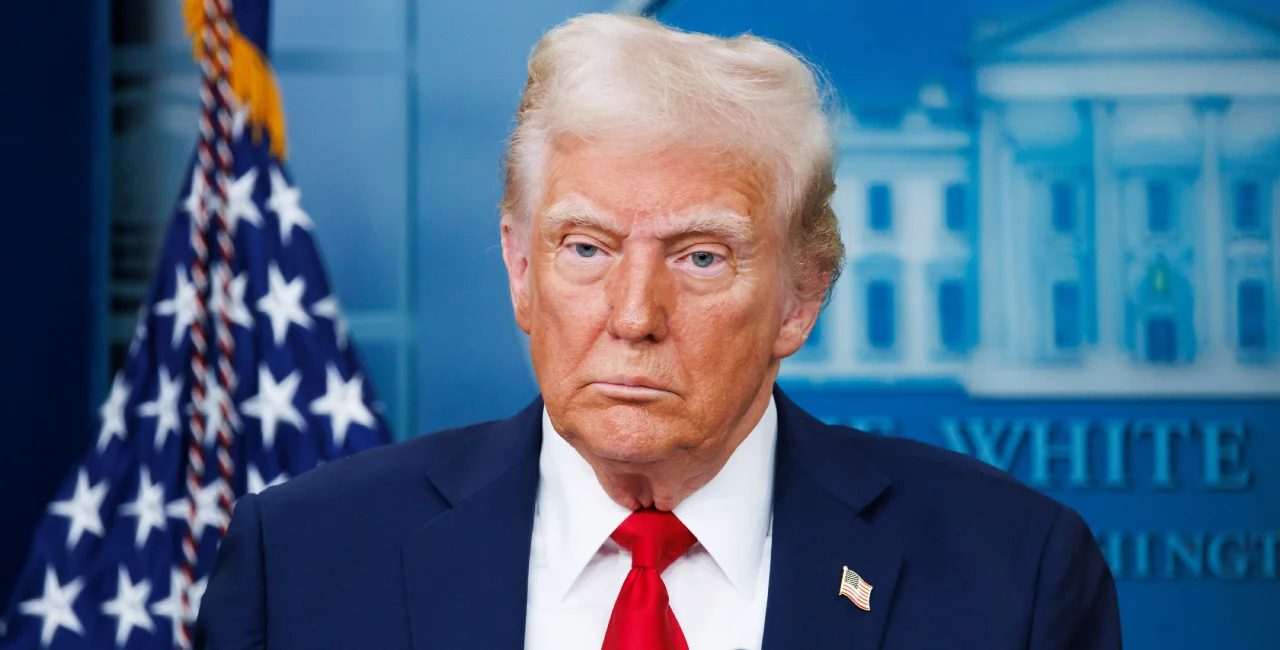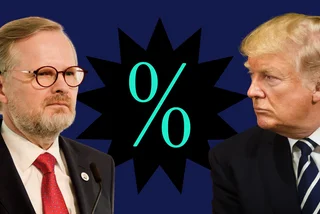Czech public opinion is increasingly critical of Donald Trump and his influence on global politics, according to a new survey conducted by the Public Opinion Research Centre (CVVM). The survey shows that only 28 percent of Czech respondents positively assess Trump’s actions as U.S. president, while 64 percent hold a negative view.
The survey was conducted in March and released this weekend amid reports that the U.S. would recognize Crimea as part of Russia under a proposed peace deal. The recent news comes as a major departure from Washington’s long-standing stance on the region’s status.
The local poll reveals a growing skepticism among Czechs regarding the motives and consequences of U.S. actions abroad. More than half of the respondents (57 percent) believe Trump’s leadership weakens global democratic systems, while only 22 percent say it strengthens them.
Foreign policy seen as self-serving, not democratic
The survey found that 85 percent of Czechs believe the U.S. prioritizes its own power and economic interests in foreign affairs, often at the expense of the global consensus.
Only 34 percent agree that U.S. policy defends freedom, democracy, and human rights—while 48 percent disagree. A majority of respondents, 58 percent, go as far as to describe current U.S. foreign policy as a threat to the modern world.
Elon Musk, who has reportedly acted as an advisor to Trump, also received poor marks from the Czech public. Just 18 percent of respondents view his political involvement positively, while 69 percent hold a negative opinion.
Tariffs imposed by the U.S. on the European Union—among the more visible policies under the Trump administration—were supported by just 11 percent of respondents, with 75 percent opposing them.
A minority (20 percent) of Czechs would support U.S. military interventions against authoritarian regimes, and most appear wary of Washington's willingness to act unilaterally and without global consensus. Only 36 percent believe the U.S. seeks a stable and peaceful world order.
US a ‘necessary partner,’ not close ally
This mistrust is also reflected in how Czechs view their country’s international alliances. While nations like Poland (72 percent), Germany (64 percent), and France (60 percent) are seen as allies, only 28 percent of Czechs regard the U.S. in the same light.
Nearly half of respondents (49 percent) instead consider the U.S. a “necessary partner”—a term that suggests cooperation based more on obligation than shared values.
By contrast, countries such as Slovakia, the UK, and Scandinavian nations still enjoy relatively high levels of trust among Czech respondents. Russia, amid its ongoing war against Ukraine, is viewed far more negatively. A strong majority—71 percent—consider Russia a direct adversary, while just 3 percent label it an ally.
Bloomberg reports that the new U.S. plan for a ceasefire in Ukraine envisions freezing current front lines, shelving Ukraine’s NATO ambitions, and formally recognizing Russian sovereignty over Crimea as part of a broader truce.
While Ukraine reportedly accepted an initial American proposal last month, according to Czech Foreign Minister Jan Lipavský, Moscow has so far withheld clear endorsement, demanding the lifting of Western sanctions and addressing what it calls the root causes of the war.
Critics warn that legitimizing the 2014 annexation could undermine international norms and set a dangerous precedent. The White House has not confirmed the details, and further talks with Kyiv are expected.
The CVVM survey was conducted between March 14 and 26, with 1,037 Czech citizens participating. The full results of the survey can be found here.












 Reading time: 3 minutes
Reading time: 3 minutes 





























